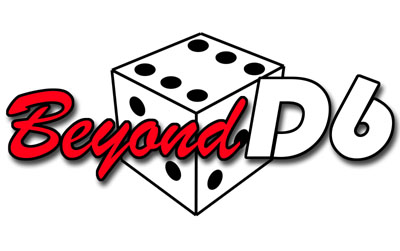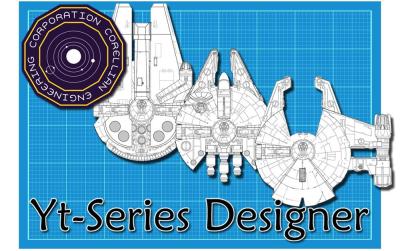Scholarly pursuits in SWRPG
by Peter Walker
After thinking for some time now about how schools and universities can play a part in the Star Wars role playing game and how the knowledge skill Scholar can be made to play a more significant role in SW campaigns, I decided to try and put together a study and learning system for SWRPG.
My goals were :
Make study a viable learning technique.
a. Wherever possible make system as real to life as possible.
b. E.g. Make it possible for students to leave university with lots of theoretical knowledge but less real world experience, and yet still make it possible to develop this theoretical knowledge into practical skills over time with experience.
c. Provide additional scope for the use of scholar skills in Star wars role-playing.
d. Ensure that study is not an easy or cheap alternative to role-playing character development.
To achieve these goals I worked from the following concepts :
a. Study is not used to improve "practical" skills, but rather to develop Scholar: xxx skills
b. It is possible to "convert" these Scholar: xxx skills to corresponding skills by practical experience.
c. A week of fairly intense study equates to roughly 2 character points of development.
d. Scholars should be able to effectively advise others on how to go about tasks.
Part 1: Using study to gain / improve Scholar skills.
First of all the standard rules apply for gaining a skill apply. i.e. A character must gain sufficient character points to advance in the skill just as they would normally. However we now have an additional method of gaining character points by study.
Skill points gained by study can only be used to improve the Scholar skill in the appropriate specialization studied. To gain these skill specific character points a character must study appropriate training notes for a total of 20 hours. A character may study productively for up to 10 hours in a day if doing nothing else. The GM will decide the cost of these training notes and the ease by which they can be obtained.
A character that has a higher proficiency in the practical skill than their current proficiency in the scholar proficiency gains these character points at a rate of one per 10 hours of study.
When the character has sufficient character points (skill specific and / or points gained during play) he/she may then attempt to gain the skill
Example.
Musel a sullustan scout who has a Knowledge of 2D and droid programming of 3D+2 decides that he wants to bring his theoretical knowledge of droid programming up to the same level has his droid programming skill.
To bring his Scholar: droid programming skill to 3D+2 Musel buys the necessary distance learning packs from a local droid engineering university. These packs include a used ASP7 droid and an assortment of skillware and traitware datacards to practice with.
Over the course of the next few adventures Musel spends 10 hours per character point (having some spare time during hyperspace jumps) studying the course and improving his skill. ( 2CP per pip up to 3D = 6CP = 60 hours + 3CP per pip up to 3D+2 = 6CP = 60 hours, for a total of 120 hours)
If Musel spends another 60 hours (3CP at 20 hours each) studying he will be able to increase his Scholar: droid-programming skill to 4D.
*** Optional rule
These character points gained by study may also be used for improving rolls against the matching practical skill use during game play. The character remembers something he read in his course that is of relevance.
***
Part 2: Using scholarly knowledge to improve practical skill rolls.
This rule is an extension to the standard preparation rules. (Spending twice as long on a task gives a +1D bonus)
When a character takes the time to prepare for a skill roll and has sufficient reference materials available, the player can attempt to use the appropriate Scholar skill to gain and additional bonus to their roll. To gain this bonus the character makes a Scholar: xxx roll against the difficulty of the task to be attempted. The amount of the bonus is dependent on the degree of success of this roll.
Result Bonus
Rolls less than difficulty 1D (standard bonus for preparing)
Rolls 0 - 5 > difficulty number 1D +1
Rolls 6 - 10 > difficulty number 1D +2
Rolls 11 - 15 > difficulty 2D
Rolls 16 - 20 > difficulty 2D + 1
Rolls 21 - 25 > difficulty 2D + 2
Rolls 26 or more > difficulty 3D (maximum bonus)
This preparation bonus may be applied to another character's attempt at skill use. When using scholar skills to advise another character the bonus should be considered a maximum bonus.
Example.
Musel, currently studying at a local university decides that he wants to attempt to reprogram the personality of his ASP7 droid. To program an elementary personality matrix is a difficult task, something that is likely to be beyond Musel's current ability so he decides to ask for advice from Danyul, one of the professors at the university. Danyul has Scholar: Droid programming 10D and easily rolls a sufficiently large number to gain a 3D bonus. He decides however that passing on that entire bonus would make the task too easy and prevent Musel from learning from the attempt. He tells Musel enough about the steps involved for Musel to gain a 1D+2 bonus. Musel will have to attempt the task with just his 3D+2 droid programming skill and the 1D+2 bonus for a total of 5D+1.
Part 3 : Using a Scholar skill to develop the corresponding Knowledge or Technical skill
When a character skill has a scholar skill at a higher skill level than the corresponding Knowledge or Technical skill it is possible to improve the practical skill (1 pip at a time) to the same level as the scholar skill.
To gain the skill the character must
a. Have the appropriate Scholar specialization at a level greater than the skill they wish to improve.
b. Spend at least 8 hours per current skill die using the skills learned in a practical manner, and have been successful in at least 4 hours per die of their efforts (it is possible to learn from mistakes too). The use of these skills must be at an appropriate skill level. Use time to perform listed in rulebook under each skill. These times are halved if a teacher is available. It is allowed (and probably expected) for the trainee to use the preparation rules above. This reflects the time spent referring to notes etc whilst performing the task. The tasks performed can be any tasks that the GM agrees are appropriate and of the right sort of difficulty level (or greater). They can be tasks the character undertakes as practical exercises or the use of the skills during the course of an adventure.
Current skill die Suggested difficulty level Total training time
1 Easy 8
2 Moderate 16
3 Moderate 24
4 Difficult 32
5 Difficult 40
6 Very Difficult 48
7 Very Difficult 56
8 Heroic 64
> 8 Heroic + 4 per die above 8 64 + 8 per die above 8
Note: By the time very difficult / heroic tasks are being attempted a single attempt is likely to take in excess of the training time required. In this case successful completion of the task ensures the skill progression.
Example
Musel, a sallustan scout who has a droid programming skill of 3D+2 and Scholar: droid programming of 4D, decides that he wants to build upon his Scholar: droid programming and improve his droid programming skill. To do this he needs to spend at least 24 hours using his droid programming skill
Musel selects some space transports repair skillware datacards from the university pack and spends this time installing a number of pips of skillware into his ASP7.
If at the end of this time Musel has been successful in at least 12 hours of his endeavors he will advance by one pip (and gain an enhanced ASP 7). If not Musel could continue to practice installing cards / programming his droid until he has accumulated 12 hours of successful droid programming. It is quite possible that the skillware cards will run out before the requisite time is completed.
In this case will either have to obtain more skillware or agree with the GM alternative tasks of the appropriate skill level.
Optional rule:
Studying at a university or other learning institute, working / studying directly with instructors should perhaps offer some advantage. Say for instance reduced study time (16 hours per character point) plus the ability to intermix study and training time, still with the maximum of 10 hours TOTAL time per day possibly allowing the student to progress in both Scholar: droid programming and droid programming simultaneously. Naturally, teachers are much more readily available for training time at such locations
An alternative might have been for Musel to actually take time out from adventuring to study at the university itself for a shorter more intensive period. While there, it is likely that the university would have droids available for him to train on and hone his skills, or he might have offered his services to people willing to risk allowing a "student" to modify their droids at a low rate.
Part 4:Using Scholar skills to teach the corresponding Knowledge or Technical skill
In those cases where training is required for a character to advance in a skill the training can be provided by a character with the corresponding scholar skill at least 2D higher than the goal skill level of the trainee. When this occurs the training time is whichever is the greater of
a. The training time required as detailed in Star Wars: The Roleplaying Game 2nd Edition
The training time required to convert scholar skills to practical skills listed in part 3 above.
During this time the character must have been successful in as many hours of training as are detailed in part 3.
|











